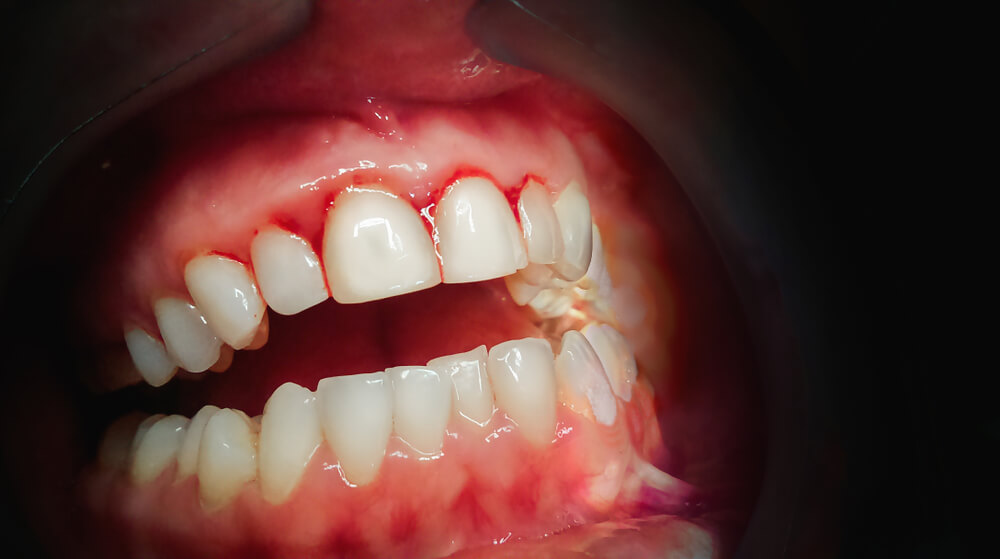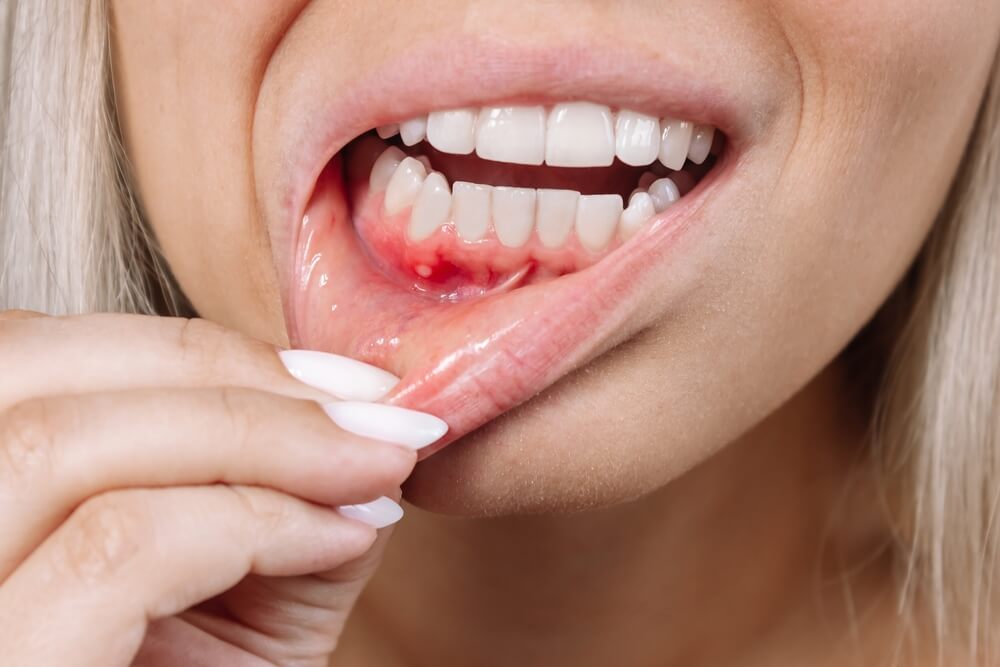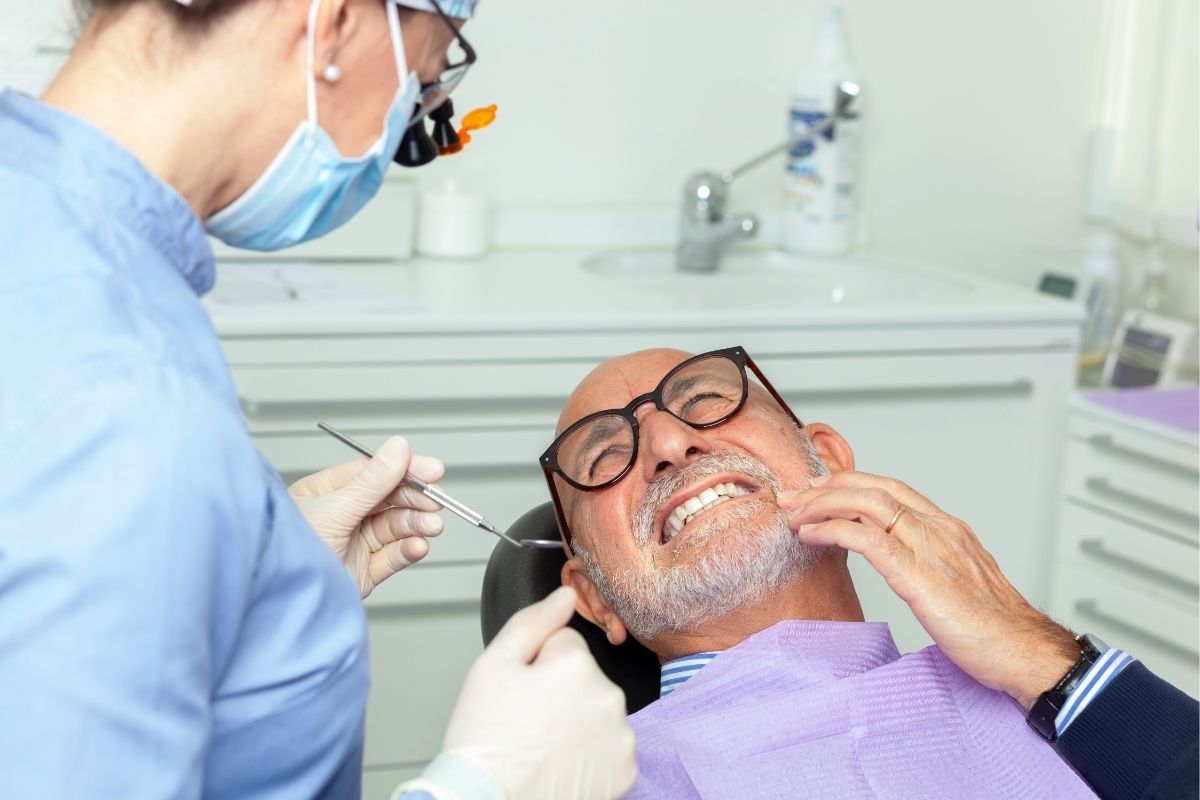Bleeding gums during brushing is a common yet alarming experience for many. This phenomenon is not just a minor inconvenience; it’s a red flag signaling potential oral health issues that need immediate attention. At the heart of this issue lies bacterial buildup, a seemingly harmless problem that can escalate into serious gum diseases if not addressed promptly. In our guide, we’ll explore the main causes why gums bleed, its implications, and preventive measures, emphasizing the critical role of oral hygiene in maintaining gum health.
Why Do Gums Bleed When Brushing?

When gums bleed, the main culprit behind this is often bacterial buildup. Bacteria can accumulate beneath the gum line, causing inflammation and irritation. When you brush your teeth, the bristles can exacerbate this inflammation, leading to bleeding. Therefore, it’s crucial to address the root of the problem: keeping your teeth and gums clean.
Understanding Bacteria and Gum Health
Impact of Poor Oral Hygiene
Neglecting proper oral hygiene allows bacteria to thrive in your mouth. These bacteria can form sticky plaque, which harbors harmful microorganisms that can damage your gums and teeth. When plaque accumulates along the gum line, it can trigger inflammation, a condition known as gingivitis. Bleeding gums are often an early sign of gingivitis and should not be ignored.
Importance of Regular Brushing and Flossing
To combat bacterial buildup and prevent gum disease, it’s essential to maintain a consistent oral hygiene routine. Brushing your teeth twice a day and flossing daily can help remove plaque and food particles from hard-to-reach areas, reducing the risk of gum inflammation and bleeding.
Preventing Bleeding Gums
Effective Oral Hygiene Practices
The best way to prevent bleeding gums is by keeping your teeth and gums clean. This involves brushing your teeth thoroughly using a soft-bristled toothbrush and fluoride toothpaste. Pay close attention to the gum line and gently massage the gums as you brush to stimulate blood flow and promote gum health.
Importance of Regular Dental Checkups
In addition to daily oral care, regular dental checkups are essential for maintaining optimal oral health. Your dentist can detect early signs of gum disease and provide professional cleanings to remove stubborn plaque and tartar buildup. By scheduling routine dental appointments, you can address any concerns before they escalate into more serious issues.
Healthy Lifestyle Habits
Incorporating healthy lifestyle habits can also contribute to gum health. Avoiding tobacco products and consuming a balanced diet rich in fruits, vegetables, and whole grains can support overall oral health. Drinking plenty of water can help rinse away food debris and bacteria, reducing the risk of gum disease.
Seeking Professional Guidance
If your gums continue to bleed despite practicing good oral hygiene habits, it’s important to consult a dentist or periodontist. They can assess your oral health, identify any underlying issues, and recommend appropriate treatment options. Ignoring persistent gum bleeding could lead to more severe complications, so don’t hesitate to seek professional guidance.
In Summary

Bleeding gums when brushing can be a concerning issue, but it’s often a sign that your oral hygiene routine needs improvement. By addressing bacterial buildup and adopting proper oral care habits, you can maintain healthy gums and prevent gum disease. Remember to keep your teeth clean, stay consistent with brushing and flossing, and prioritize regular dental checkups for optimal oral health. Don’t let bleeding gums dampen your smile—take action to protect your oral health today. If you have any concerns or questions about your gum health, feel free to contact Indian Trail Dental today.




